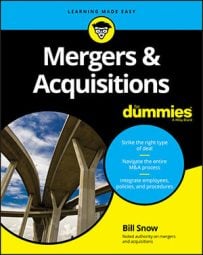Most letters of intent (LOI) contain some info about where Buyer proposes to obtain the dough needed to effect the M&A transaction. Sellers should pay very careful attention to this part of the LOI. The phrase you’re on the lookout for is financing contingency.
A financing contingency is a hedge for Buyer. He’s saying he may not have the money right now and hopes to obtain it before closing, but he wants a way out of the deal in the event that he can’t get the necessary money.
As a Seller, tread carefully if a Buyer is asking for a financing contingency, especially if the Buyer is a large company or a private equity (PE) firm. A financing contingency is not inherently bad — deals can still get done if a Buyer wants to include one — but Sellers should try to move forward with an LOI that doesn’t include a financing contingency if at all possible.
If Buyer decides not to do the deal, all he has to do is claim he can’t get the money. The inability to get the money contradicts his claims to be a big PE firm or another sizable company: If Buyer is using his strong financial position to entice Seller, then why would that Buyer need a financing contingency?

